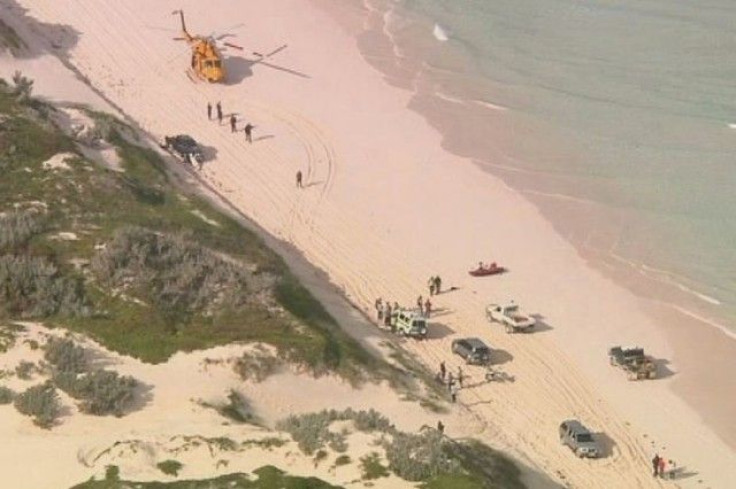Shark Attacks In Western Australia Killing Tourism

Western Australia's reputation as the world's deadliest place for shark attacks has made it a tough sell for prospective tourists, and local authorities have asked the federal government to consider lifting the ban on fishing of great whites to help alleviate the problem.
The request came after the state experienced its second fatal shark attack in 2012 and fifth in less than a year.
A great white is believed to have killed 24-year-old Perth man Ben Linden on Saturday while he surfed near Wedge Island, 100 miles north of Perth. According to a witness on a Jet Ski who tried to retrieve the man's body, the young surfer was paddling out to sea on his surfboard when he was attacked.
Surfers in the area said they noticed a large shark trawling the waters in previous days and had nicknamed it Brutus due to its size.
Authorities closed state beaches over the weekend and searched for the shark and the man's remains, neither of which were found.
Western Australia Fisheries Minister Norman Moore told reporters he was very distressed by the death and the state's alarming shark attack toll.
Five fatalities in Western Australia [in 10 months] is unprecedented and cause for great alarm, he said.
He worried that the spate of attacks could spell disaster for the state's lucrative tourism industry, which draws tens of thousands of tourists each year.
Those people who want to come here to enjoy an ocean experience will be turned away because of this situation, Moore said.
The fisheries minister promised to lobby Canberra to allow more commercial and recreational fishing of great whites, saying there was anecdotal evidence that the species' population had recovered significantly since it was first protected in Australia in the 1990s.
Meanwhile, tourism operators in Western Australia have been told they cannot operate popular cage-dives with sharks for fear of attracting more great whites closer to the shore. The ban comes amid a heated debate in the country over the link between human attacks and the process of baiting the animal with food.
I have decided that Western Australia will not be the place for shark cage tourism, like those currently operating in South Australia and South Africa, Moore stated last week. While such ventures may generate direct or indirect economic benefits, there are also concerns that sustained activities to attract sharks to feeding opportunities have the potential to change the behavior patterns of those sharks.
I would prefer to take no risks until more is known, he added.
A recent study from the Commonwealth Scientific and Industrial Research Organization, or CSIRO, has found that while baiting keeps sharks in an area for a longer period of time, it's not necessarily linked to human attacks.
Roughly $13.65 million has been allocated to reducing the risk of attacks along Western Australia's pristine coast over the next four years. Some of the money will be used to research shark activity, while a portion will go toward educating people about shark safety awareness.
Officials have told swimmers and surfers they can reduce the risk of an attack by avoiding the water at dawn and dusk, swimming in pairs near the shore and steering clear of river mouths or drop-offs to deeper water.
Scientists note that sharks are much more afraid of us than we are of them, and they have good reason. According to United Nations estimates, more than 10 million sharks are killed each year for their fins -- a figure many conservationists consider an underestimate.
Even Peter Benchley, the author who instilled terror in millions of moviegoers with his best-selling novel, Jaws, which he helped turn into a movie, said to a group in Hong Kong in 2000 that you are much more likely to be killed by bees, dogs, bats and, certainly in Hong Kong, automobiles.
Benchley was in Hong Kong, the world's largest importer of shark fins, to urge governments to protect sharks, acknowledging that the concepts upon which Jaws was based were mostly erroneous.
Back then it was thought and accepted by everybody that great white sharks targeted human beings, the demonizer-turned-protector said. Now we know that great white sharks, and indeed all sharks, avoid people, and 70 or 80 percent of the time if they bite a human being it's by accident and they spit the human being out.
READ ALSO: How Likely Is A Shark Attack?
© Copyright IBTimes 2024. All rights reserved.












